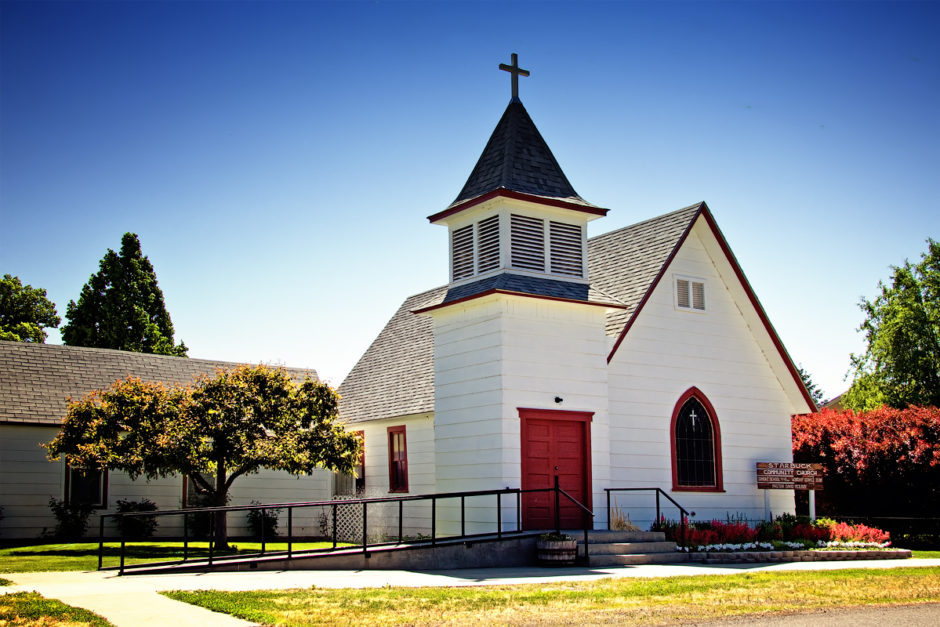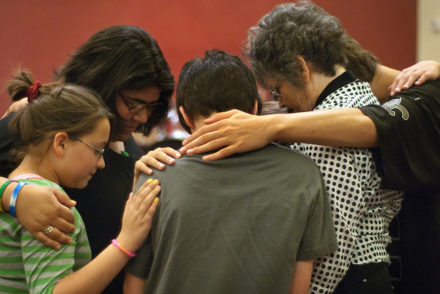The community surrounding our condominium complex was overrun with a law enforcement presence last week. The usually quiet suburban neighborhood was disrupted by the sound of sirens, helicopters, dozens of police cruisers, and canine units. They were tracking a deranged killer. He had murdered two children in an apartment home nearby. These precious boys were his nephews aged 2 and 8.
It was shocking reality therapy for residents of the mission field down or across the street from seven local churches. Talking with neighbors and others in the greater community I was surprised to learn how many of them were unaware of the incident, or the news that this killer was finally apprehended on a nearby street. It affirmed what I had thought for some time. Many of us live in a bubble, our own little private world sheltered from the mean streets around us. That so many uninformed neighbors were members of local churches was even more alarming. Perhaps the thought that many believers exist in a “Christian bubble” is a good assessment of the influence of the church in these complex times.
Writing in Leadership Journal (Summer, 2011), church planter Trevor Lee explained, “By ‘Christian bubble’ I mean the subculture Christians create that allows us to conduct our entire life having minimal contact with anything secular.” (1) With the largest percentage of conservative, evangelical churches surviving on a downward trend line, it’s not hard to understand why so many of them have insulated themselves from outside influences. I mean, its survival mode time. And, that’s about living for another week and guarding that which is inside.
So, what are the roots of this Christian bubble? In my opinion, there are several—
(1) Separation anxiety.
A point of clarity may work here. It’s really a reverse separation anxiety. Bubble Christians are not in a funk because they are separated from the world. They are fearful of being in the world and overcome by worldly influences. We’ll just keep our Christian lives in the bubble so none of that worldly influence can seep into us. These believers need to read through John 17 again and go to prayer meeting with Jesus. When Jesus prayed for future believers, he prayed that they would be in the world but not of the world. Even more, Jesus promised that he had overcome the world (see John 16:33). He meant for us to “let your light shine before others, so that they may see your good works and give glory to your Father who is in heaven” (Matthew 5:16, ESV).
(2) My happy place.
For many believers church is an escape from a grueling life. Daily life is often hectic, fast, and chaotic. The psychology people tell us we need a place of retreat, that special quiet chamber of solitude and rest. So, church becomes our happy place. Well, we like to spiritualize it some, using words like sanctuary, haven, harbor, shelter, refuge, and others. And, we don’t like outside influences to invade our happy place. Jesus countered that thought when he said, “Go out to the highways and hedges and compel people to come in, that my house may be filled” (Luke 14:23, ESV).
(3) My spiritual center.
Believers are often ill informed about real life because they do not apply their faith and worldview to every aspect of life. For many believers life is segmented into individual silos. Faith is kept over here, isolated from the decisions, actions, and processes that place us at odds with the world around us. It’s serious misunderstanding of discipleship, Bible teaching, and the role of believers in culture. Everything has a spiritual dimension. If my faith doesn’t touch everything I do, there’s a flaw in it! The Apostle Paul emphasized this thought when he wrote to the Galatians “I have been crucified with Christ. It is no longer I who live, but Christ who lives in me. And the life I now live in the flesh I live by faith in the Son of God, who loved me and gave himself for me” (Galatians 2:20, ESV).
(4) Post traumatic syndrome.
Many believers have been involved in a church fight. Since the first century church people have had trouble getting along. Usually, when the dust clears, church splits and divisions are blamed on those new people, outsiders who have moved into the community. They suffer from post-traumatic syndrome and protect themselves by creating walls to keep disruptive influences out. Living outside the Christian bubble is hard. Jesus promised his disciples, “I have said these things to you, that in me you may have peace. In the world you will have tribulation. But take heart; I have overcome the world” (John 16:33, ESV).
(5) Home sweet home.
Church is a family and a spiritual home for many believers. It is perhaps more so today in our highly mobile world. Factored into the family thing are sociological blather about the number of people we can actually accommodate in our real life friend, acquaintance, and family circles. When we edge up close to that numerical boundary, there’s often a shut-down mechanism to keep it a close-knit family. Thus, a Christian bubble, often closed from those who need the Gospel. In a final teaching to his disciples, Jesus said, “Peace be with you. As the Father has sent me, even so I am sending you” (John 20:21, ESV).
The function and role of Christians in society is a clear teaching of Scripture. Even more, God’s Word calls on all believers to be alert and watchful, diligent and vigilant, aware of the world around them. Jesus warned his followers to be “…as wise as serpents and innocent as doves….” (Matthew 10:16, ESV). How many of us have prayed for leaders like the men of Issachar “…who had understanding of the times, to know what Israel ought to do” (2 Chronicles 12:32).
This means we must live, serve, and witness outside of this Christian bubble and engage the real world around us.
Editor’s Note: Portions of this article and the title were originally published on Dr. Holmes’s blog site @ http://www.finishperiod.com on July 2, 2015.
NOTES
(1) Trevor Lee, CTPastors, copyright 2011. http://www.christianitytoday.com/pastors/2011/summer/bubblewrapped.html





